Zipi Israeli and Ruth Pines
National Security Index: Public Opinion, 2020-2021
National Security Index: Public Opinion, 2020-2021
Zipi Israeli and Ruth Pines
The National Security Index tracks trends in Israeli public opinion on national security issues in a systematic and consistent manner. In 2020, Israeli public opinion presented against the backdrop of the COVID-19 pandemic and domestic political instability, as well as against the backdrop of security stability and normalization agreements with Sunni countries in the region. The index’s findings show that similar to the past few years, in 2020 the majority of the public believed Israel’s national security situation was fairly good.
One of the central issues on the agenda in the past year was the level of confidence in the state’s institutions, particularly in light of the challenges posed by the COVID-19 crisis. The index’s findings show that the public’s lack of trust in some of the state’s institutions, which was low even before the outbreak of the crisis – especially vis-à-vis the Israeli government – intensified. Although during the first wave of the pandemic there was a rise in public confidence in the institutions, this presumably stemmed in part from the sense of collective urgency to fight a common challenge. Over time, as the pandemic continued, a consistent decline in trust was evident. The most recent National Security Index (December 2020) showed that the Israeli government received a mere 25 percent confidence rating. The Israel Police also met with relatively low confidence amid claims regarding its conduct in enforcement of directives related to the pandemic and its attitude toward participants in the popular protests and demonstrations. On the other hand, while public confidence in the security organizations – the IDF, the Mossad, and the Israel Security Agency – declined compared to previous years, it was still relatively high (about 80 percent).
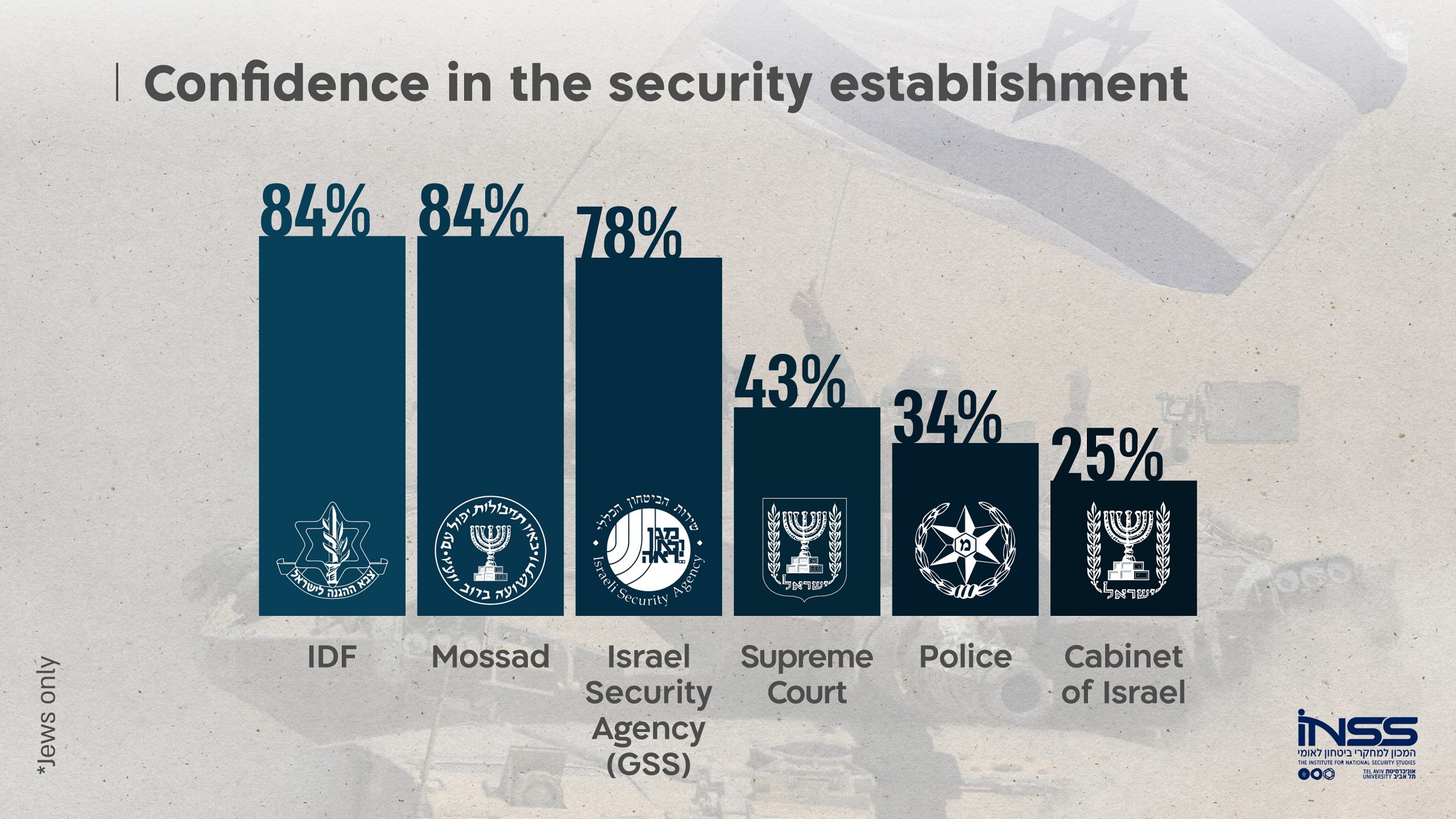
External (Security) Challenges and Threats
Over the years, the majority of the public has consistently felt that Israel can successfully cope with the security threats it faces, including: terrorist attacks, serious harm to the home front in the case of a military conflict, simultaneous escalation on the northern and southern fronts and in the West Bank, and Iran’s attainment of nuclear weapons. The most recent index indicated a high sense of confidence in the state’s ability to cope with these threats, although there was a decline in this confidence from previous years.
As for the severity of the external threats, it seems that the quiet that has prevailed in the past year, unlike in recent years, explains why the northern arena is no longer perceived as the most significant threat. This is also the case regarding the Israeli-Palestinian conflict, including Hamas in the Gaza Strip. In addition, as in previous years, in 2020 only a small portion of the public ranked these threats as very significant. In contrast, a nuclear Iran is perceived as the most significant threat facing Israel at the current time. In the five years since the nuclear deal between Iran and the great powers was reached, a nuclear Iran was not seen as a severe threat; in 2020, however, it returned to rank as the leading threat. Furthermore, a significant portion of the public supported taking action against the threat, expressing support for military action against Iran if it becomes clear that it is renewing its nuclear activity, preferably in coordination with the United States. Approximately 20 percent of the public supported placing pressure on the United States to achieve an improved nuclear deal. There was a low level of support for pressuring the United States to return to the existing deal, or for taking action toward regime change in Iran. Only a very small minority thought that a diplomatic channel should be opened with Iran. Support for military proactivity, sometimes even at the cost of risking an escalation to war, was also evident regarding Iran’s arming Hezbollah with precision missiles. It is possible that the support for military proactivity is related, albeit partially, to the sense of security in the ability to cope with defense challenges, as well as to the high level of confidence in the defense forces.
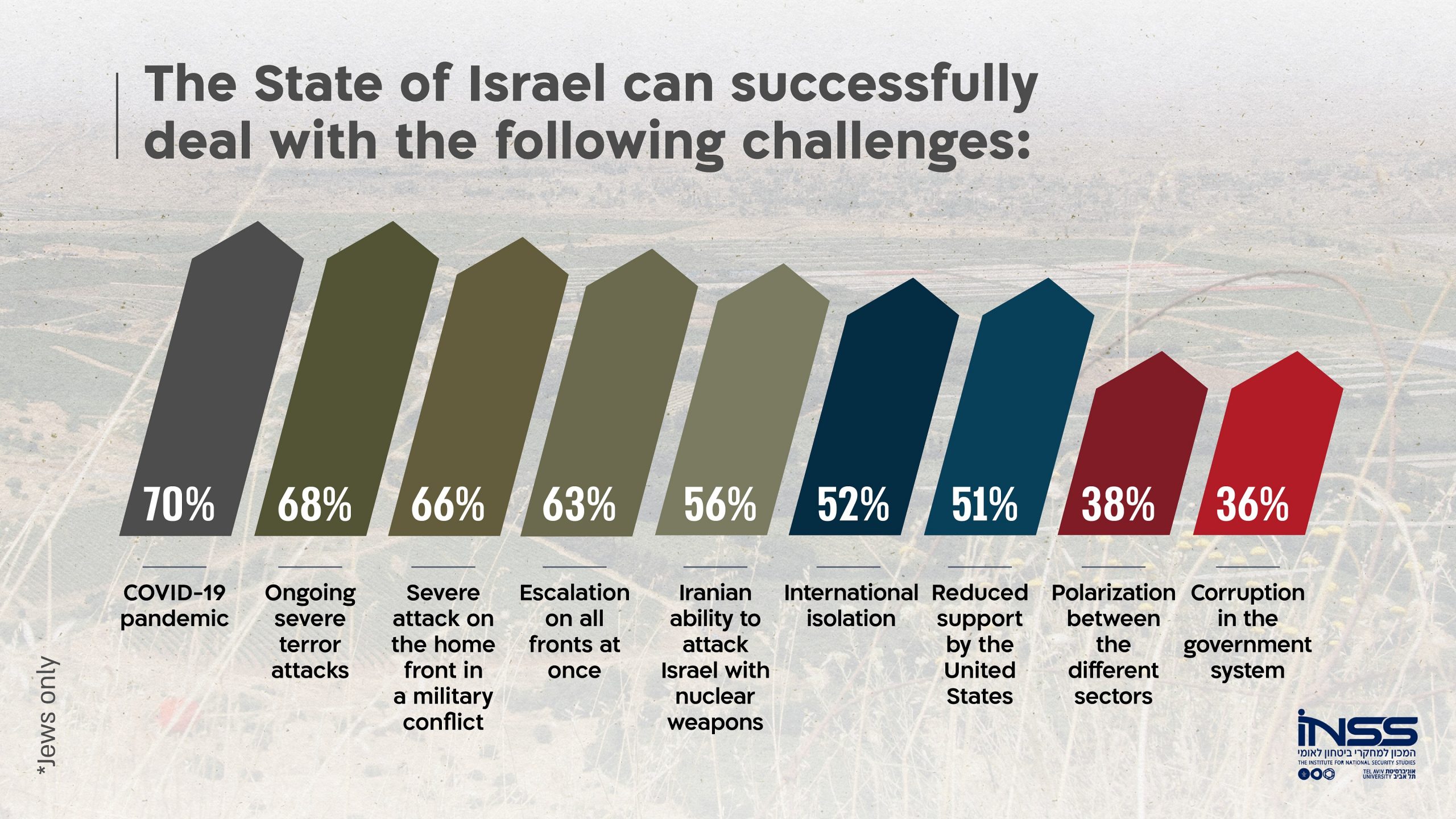
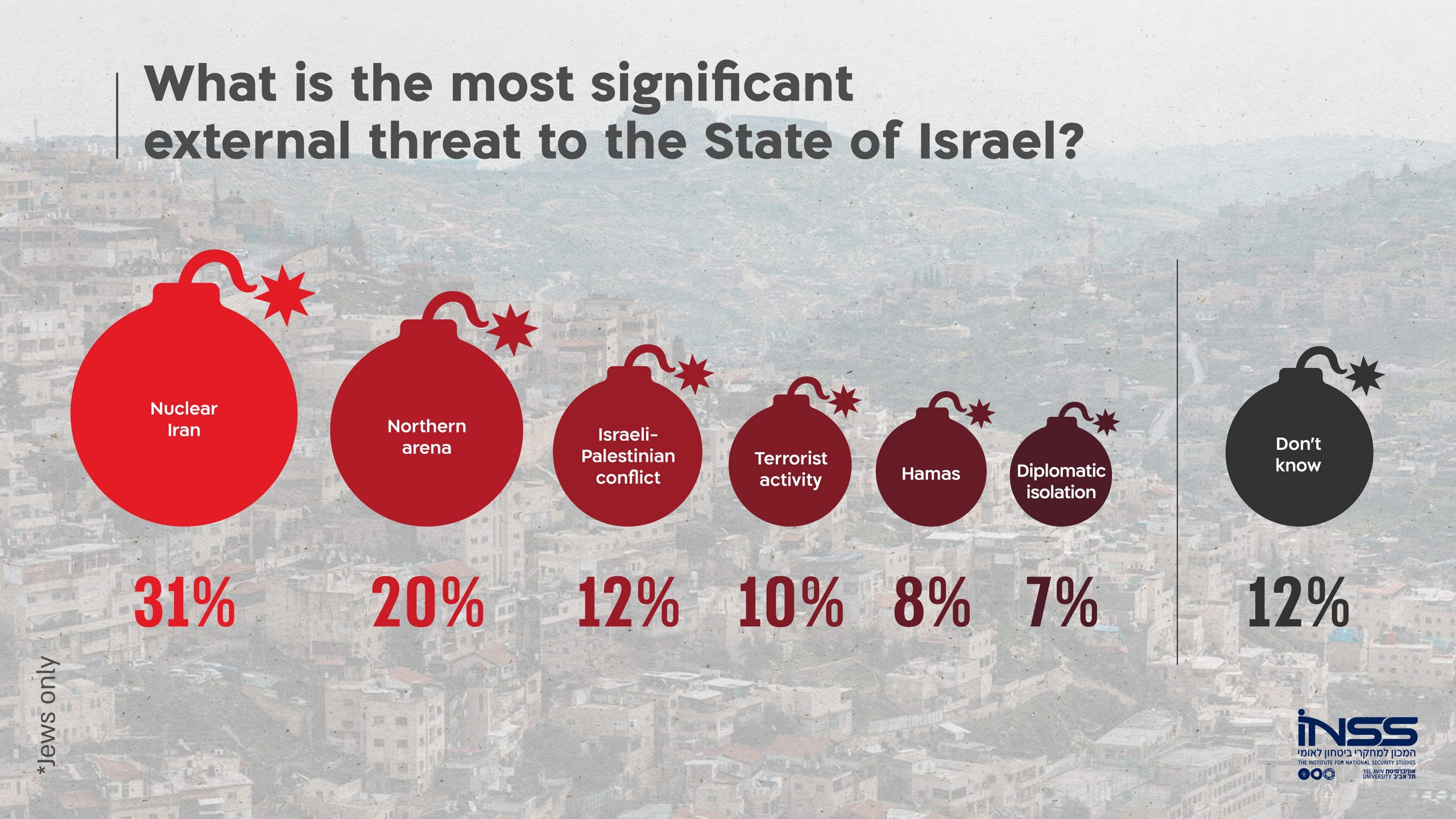
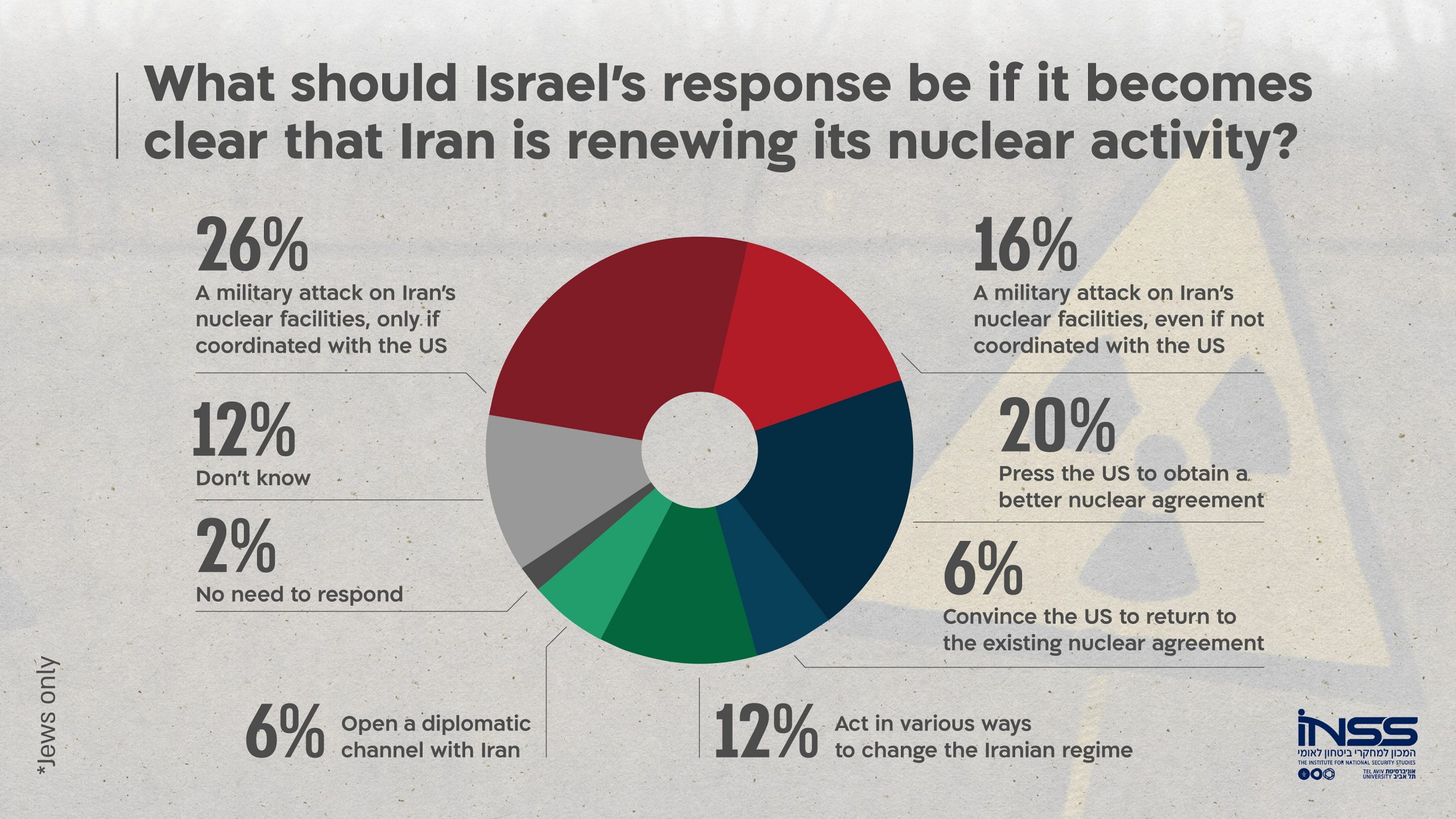
Internal-Societal Threats
Before the COVID-19 pandemic, the index’s findings showed that the public is troubled by internal threats no less than by external threats. However, at the present time it appears that the public is significantly more worried about internal threats, and only a minority is more worried about the external threats. Furthermore, in contrast with the high sense of confidence regarding the state’s ability to cope with the external threats successfully, the confidence regarding its ability to cope with internal threats is lower and marked by a significant decline in relation to the last few years. For example, the public is worried about the state’s ability to cope with corruption in the governmental system and with polarization between different sectors of society. Indeed, the majority of the public believes that following the COVID-19 crisis there must be a change in the state’s agenda such that economic and societal issues are prioritized over the defense budget. In addition, similar to the 2019 findings (before the pandemic), in 2020 the majority of the public believed that there has been a weakening of the sense of solidarity in Israeli society. As the distribution of the political map between the right and left has shifted over the past decade, the majority of the public believe that the main cause of the weakening of the sense of solidarity is the tension between these political wings. Other sources of tension – between ultra-Orthodox and secular Jewish Israelis, between rich and poor, and between Jews and Arabs in Israel – rank far behind and are not considered by a significant portion of the public to be the main causes of the decline in solidarity.
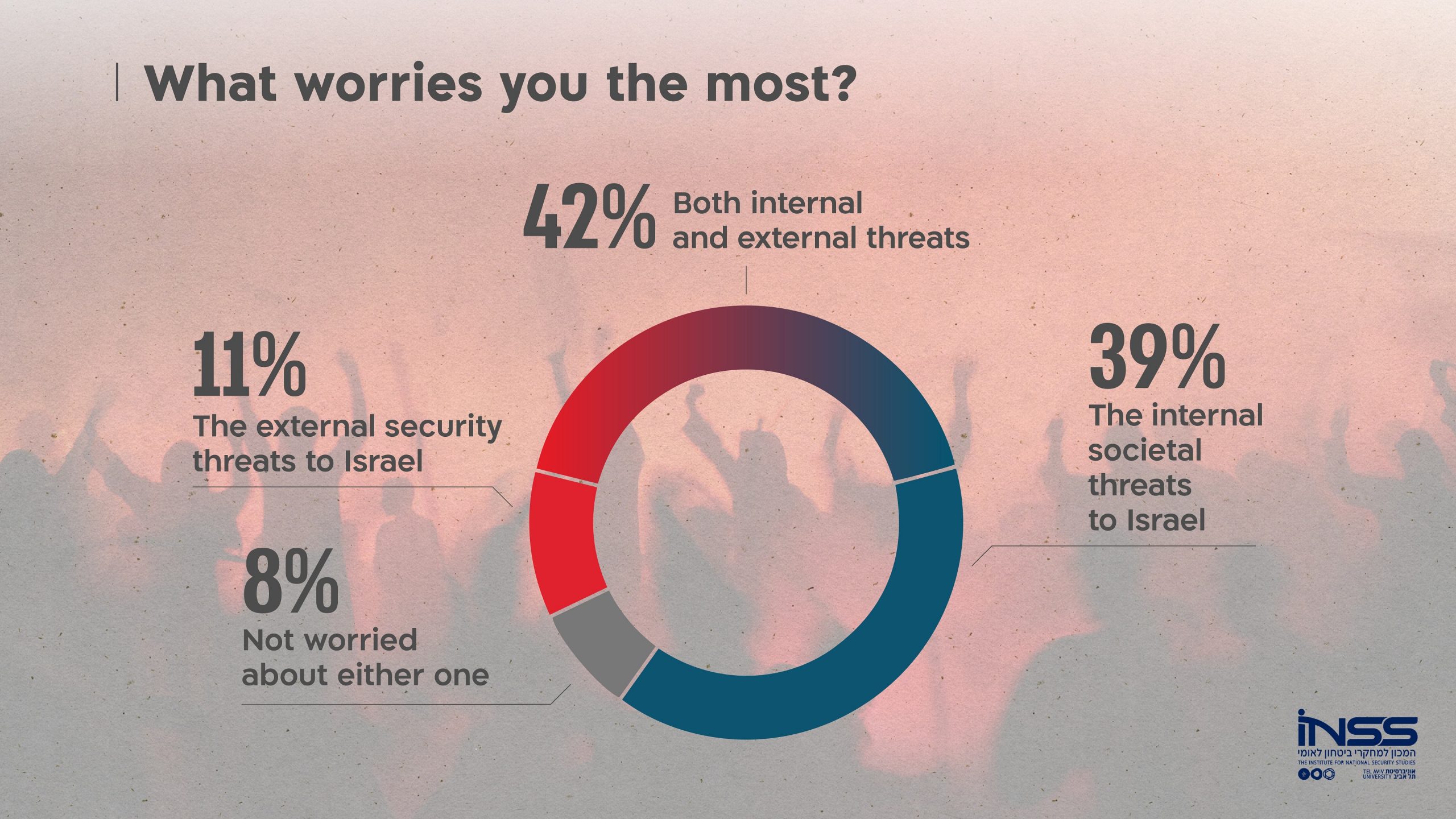
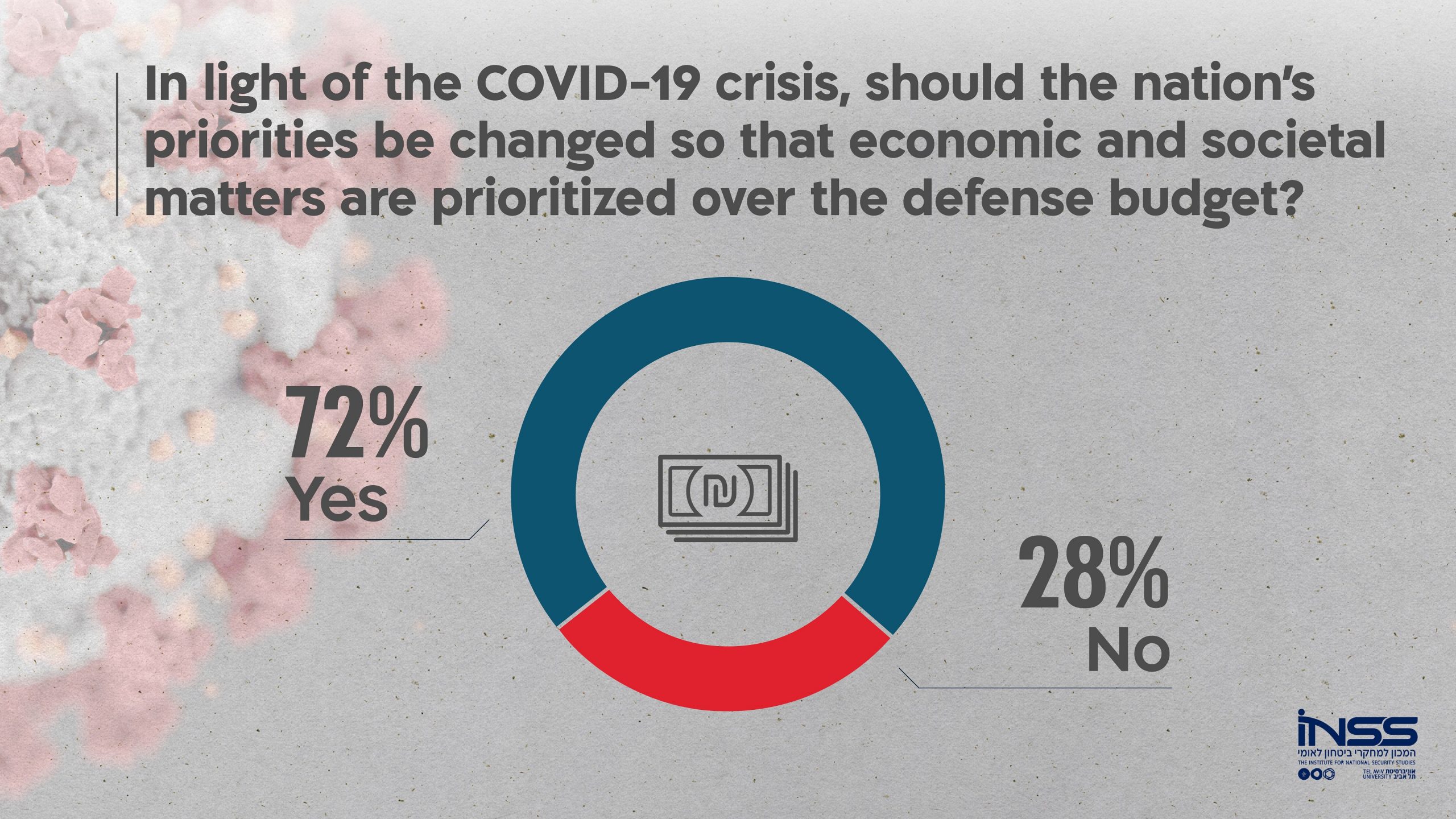
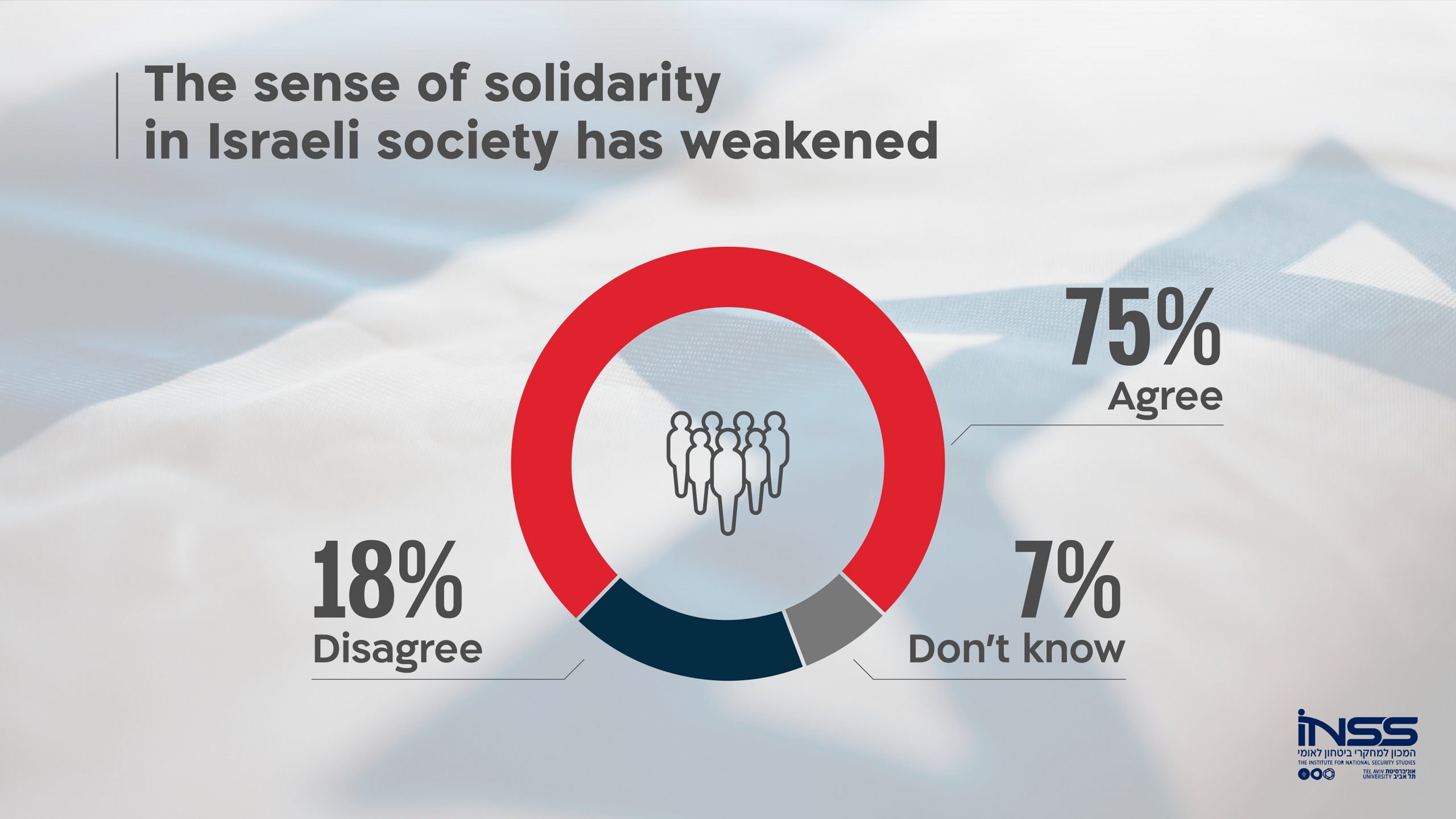
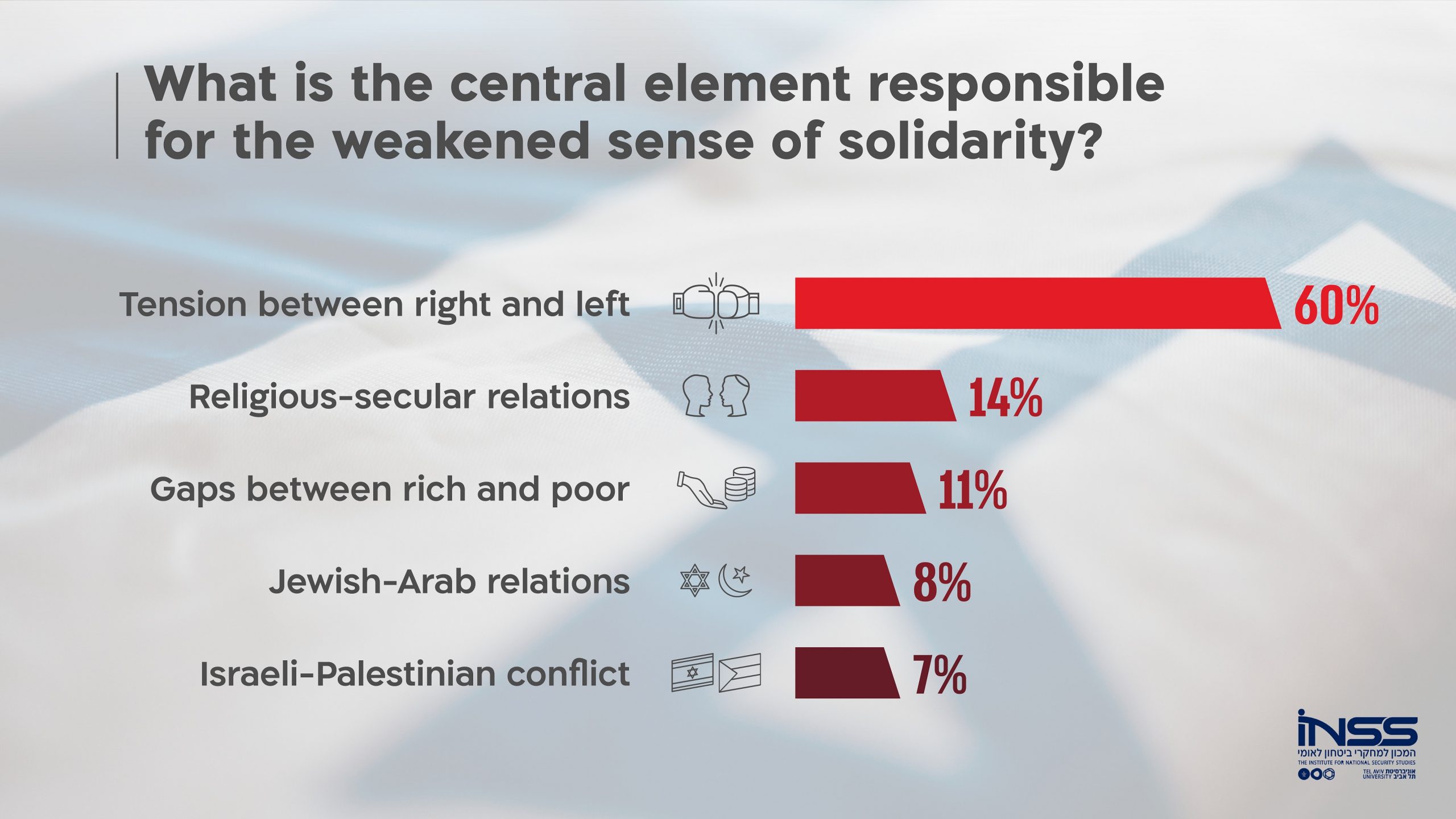
In conclusion, it is important to note that the majority of the public is confident of the state’s ability to cope with the COVID-19 crisis. It is likely that this finding was influenced in part by the timing of the survey, which was conducted during the days when it was reported that the COVID-19 vaccine was due to arrive in Israel shortly.
___________
The research is conducted by the INSS National Security and Public Opinion Research Program. The most recent survey was conducted in December 2020, and included an internet questionnaire and telephone interviews among populations that do not have access to the internet. 1200 respondents from the Jewish and Arab populations were interviewed, which constitute a representative sample of Israel’s entire adult population from the age of 18 and up. The maximum margin of error for the whole sample is ±3.7% with a 95% confidence level. Field work was conducted by Midgam Consulting and Research


